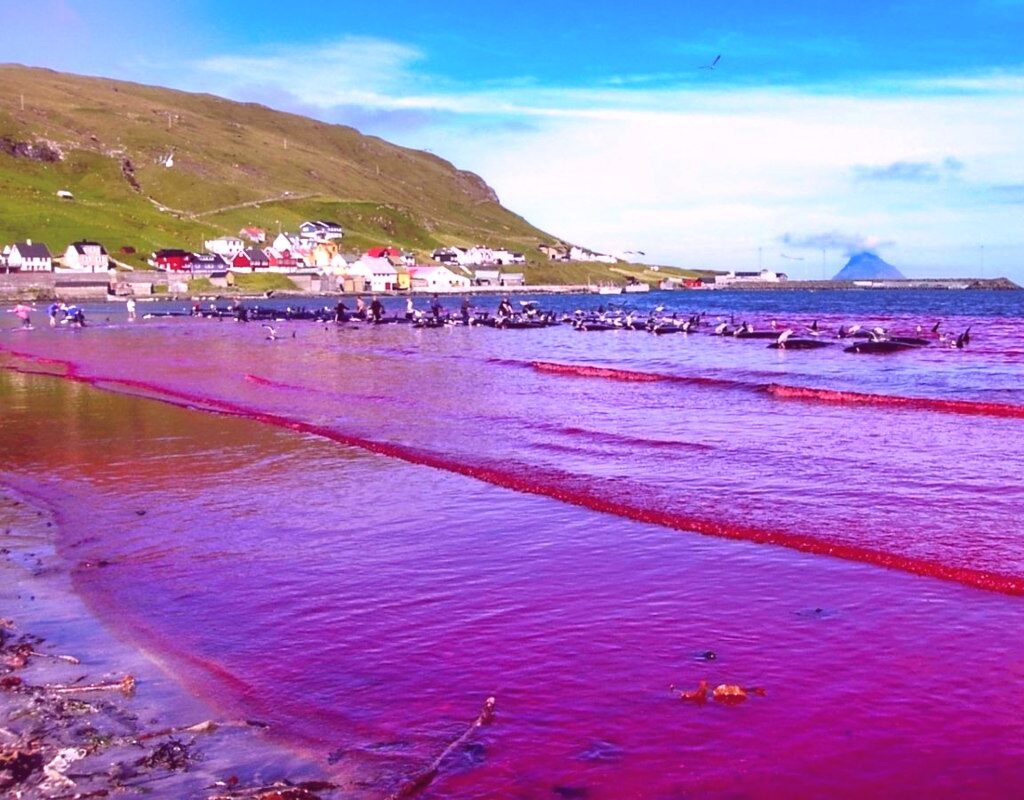Every spring, in the chilly waters of the North Atlantic, a centuries-old tradition recurs in the Faroe Islands. Long-finned pilot whales, migrating in search of warmer waters and food, approach the bay.
Food Tradition versus Environmental Impact in the Faroe Islands
However, their arrival does not herald a peaceful encounter with the locals. Instead, it’s the prelude to an act that has sparked outrage and debate internationally: the slaughter of these cetaceans.
Located between Scotland and Iceland, these islands have been part of Denmark since 1380. Although small and scattered, their lively facades contrast with the typically gray days. It is precisely in these settings where the population of Tórshavn, the capital, prepares to welcome the pilot whales.
News of the dolphins’ arrival spreads quickly among the residents. From children to the elderly, everyone is on alert. The boats, manned by male crews, head to the open sea to locate the pod and guide it towards the bay.
The goal is simple yet brutal: corral them, exhaust them, and finally kill them on the shore.
Between Nutrition and Conservation: On the Hunting of Pilot Whales in the Modern Era
The scene is hellish. Once on the beach, eager youths enter the water to hold the exhausted animals. Then, a man with a knife makes a cut in the neck of each dolphin, releasing a red tide that stains the waters. In a few hours, the bay turns into a scene of death.
The locals’ justifications for this act vary. They argue that the killing is not for sport, but a dietary necessity rooted in tradition.
Historically, the blubber from pilot whales provided essential vitamins in a region where agriculture is limited. Although today imports have diversified the diet of the Faroese, pilot whale meat still constitutes a significant part of their consumption.
However, this ritual does not go unnoticed or uncriticized. Organizations like Greenpeace and WWF have raised their voices, alerting about the declining pilot whale population and the ecological risks this entails. Moreover, consuming their meat is advised against due to its high heavy metal content.
Faroe Islands Dilemma: Respecting Marine Biodiversity or Preserving Centuries-Old Traditions
The controversy has crossed borders, intensified by the viralization of images on social media. While some call for sanctions and changes, others defend their right to continue with a tradition that, they claim, is an integral part of their identity.
The Faroe Islands’ government, endowed with autonomous legislative authority, steadfastly maintains that this practice is an essential part of their heritage, grounded in survival and necessity.
Undeniably, the pilot whale slaughter in the Faroe Islands represents a complex confrontation between tradition and modernity, sustainability and cultural preservation. The real challenge is to strike a balance that safeguards both the marine biodiversity and the enduring traditions of the community.





